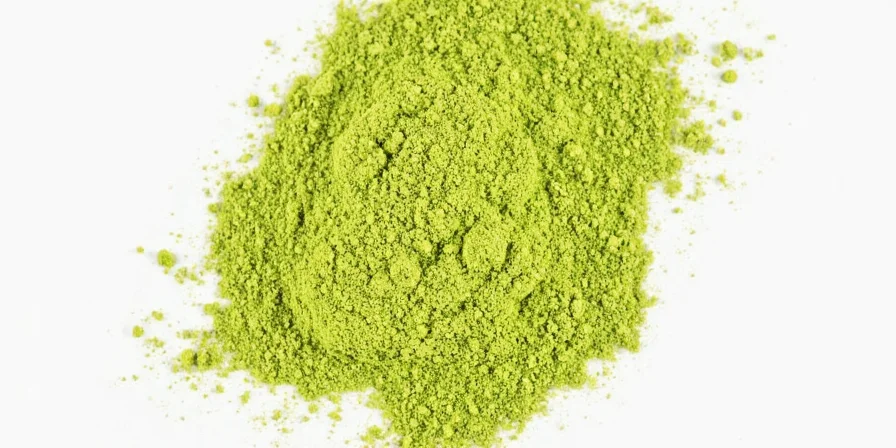The Versatile Spice: Exploring the Benefits and Uses of Celery Powder
Celery powder is a remarkable spice that often goes unnoticed in the vast world of culinary ingredients. Derived from the dehydrated stalks of the celery plant, this spice is packed with flavor and health benefits. In this comprehensive blog, we will delve into the history, nutritional value, culinary applications, and health benefits of celery powder.
What is Celery Powder?
Celery powder is made by drying and grinding the stalks of the celery plant (Apium graveolens). This process transforms the fresh, crunchy vegetable into a fine powder that retains much of its flavor and nutritional profile. Celery powder is often used as a seasoning, preservative, and natural colorant in various foods.
History of Celery Powder
Celery has a rich history that dates back thousands of years. Originally cultivated in the Mediterranean region, it was used for medicinal purposes before becoming a staple in culinary applications. The practice of drying and grinding celery to create celery powder emerged as a way to preserve its flavor and extend its shelf life. Today, celery powder is widely used in kitchens around the world.
Nutritional Profile of Celery Powder
Celery powder is not only flavorful but also packed with nutrients. Here’s a breakdown of its nutritional components:
| Nutrient | Amount per 100g |
|---|---|
| Calories | 70 |
| Protein | 3g |
| Carbohydrates | 14g |
| Fat | 0.5g |
| Fiber | 5g |
| Vitamin K | 30% of the Daily Value |
| Vitamin C | 20% of the Daily Value |
| Potassium | 10% of the Daily Value |
As you can see, celery powder is rich in several essential nutrients, making it a healthy addition to your diet. It is particularly high in vitamin K, which plays a crucial role in bone health and blood clotting.
Culinary Uses of Celery Powder
Celery powder is a versatile spice that can be used in various culinary applications. Here are some popular ways to incorporate it into your cooking:
- Seasoning: Use celery powder as a seasoning in soups, stews, and sauces. Its unique flavor can enhance the overall taste of your dishes.
- Meat Rubs: Combine celery powder with other spices to create a flavorful rub for meats. It pairs well with chicken, pork, and beef.
- Snack Seasoning: Sprinkle celery powder on popcorn, roasted nuts, or chips for an extra kick of flavor.
- Vegetable Dishes: Add celery powder to vegetable stir-fries or roasted vegetables for added depth and flavor.
- Homemade Soups: Incorporate celery powder into your homemade broth for a rich and savory flavor.
Celery Powder in Preserving Foods
Celery powder is not only a flavor enhancer but also acts as a natural preservative. Its high sodium content can help extend the shelf life of certain foods. For instance, it is commonly used in the production of pickles, sausages, and deli meats.
Health Benefits of Celery Powder
In addition to its culinary uses, celery powder offers numerous health benefits:
- Supports Digestion: Celery powder is rich in fiber, which aids in digestion and promotes a healthy gut.
- Anti-Inflammatory Properties: Celery contains antioxidants that can help reduce inflammation in the body, potentially lowering the risk of chronic diseases.
- Heart Health: The potassium content in celery powder is beneficial for maintaining healthy blood pressure levels and overall cardiovascular health.
- Weight Management: Low in calories and high in fiber, celery powder can help with weight management by promoting feelings of fullness.
- Rich in Antioxidants: Celery powder contains flavonoids and phenolic acids that can protect the body against oxidative stress.
How to Store Celery Powder
To maintain the freshness and flavor of celery powder, store it in an airtight container in a cool, dark place. Proper storage can help prevent moisture and light from degrading the spice's quality.
How Long Does Celery Powder Last?
When stored correctly, celery powder can last for up to 2-3 years. However, for the best flavor, it is advisable to use it within the first year.
Making Your Own Celery Powder
If you prefer a homemade approach, making your own celery powder is easy and rewarding. Here’s a simple method:
- Choose Fresh Celery: Select crisp and fresh celery stalks for the best flavor.
- Wash Thoroughly: Rinse the celery stalks under cold water to remove any dirt or debris.
- Slice and Dry: Cut the celery into small pieces and spread them on a baking sheet. Dry them in a dehydrator or an oven set to a low temperature (around 150°F or 65°C) until they are completely dry.
- Grind into Powder: Once dried, use a spice grinder or blender to grind the celery pieces into a fine powder.
- Store Properly: Transfer the powder into an airtight container and store it in a cool, dark place.
Conclusion
Celery powder is a versatile and nutritious spice that can elevate your culinary creations while providing numerous health benefits. Whether used as a seasoning, preservative, or natural colorant, its unique flavor and nutritional profile make it a valuable addition to any kitchen. With its rich history and diverse applications, celery powder deserves a prominent place in the spice cabinet of every cooking enthusiast.
Next time you’re in the kitchen, consider reaching for celery powder to enhance your dishes and enjoy its health benefits. From soups to snacks, this unassuming spice is sure to impress.











 浙公网安备
33010002000092号
浙公网安备
33010002000092号 浙B2-20120091-4
浙B2-20120091-4